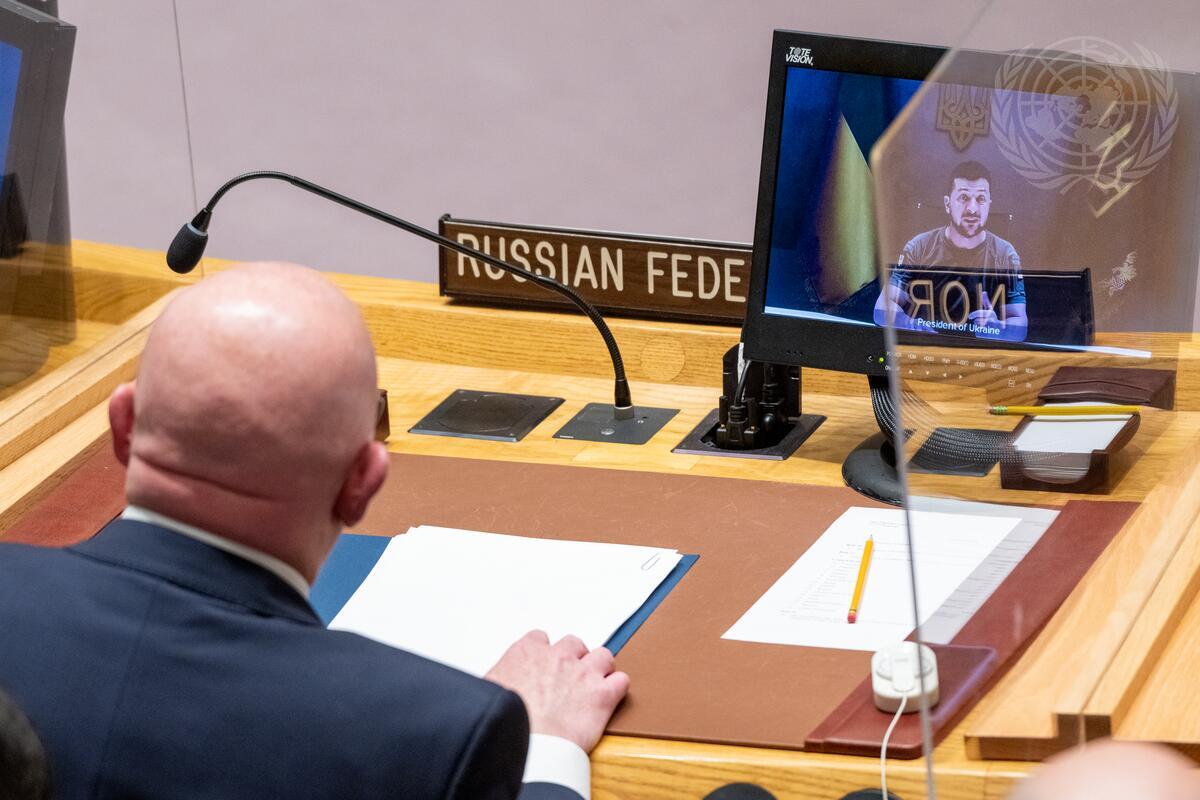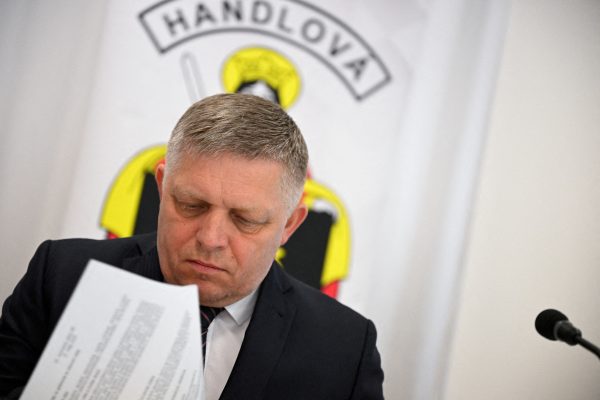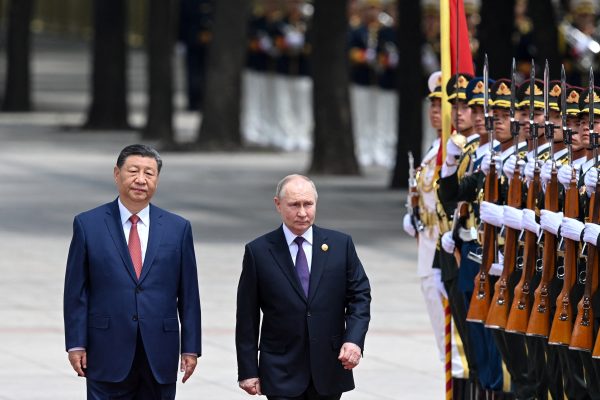Ukraine’s President Volodymyr Zelenskyy, over the objections of Russia and a small gaggle of its allies, last week addressed the United Nations (UN) General Assembly and asked a long overdue question: why does Russia still hold a veto-wielding seat on the UN Security Council?
Twice in the past, the United Nations has taken improvised steps to modify or restrict the participation of a member state when the organization judged such steps necessary. Similar improvision, adapted to the circumstances, can work again.
A General Assembly vote in 1971 gave China’s UN seat to the government in Beijing, effectively removing Taiwan from the UN. Three years later, the General Assembly declared that South Africa’s government no longer had a right to address the Assembly or to cast votes there. In neither case did the Assembly follow any script provided by the UN Charter. It relied instead on creative use of the UN’s credentials procedures — the seemingly arcane procedures that determine who represents a given member state.
What would justify putting Russia’s Security Council credentials to a vote? How would such a vote take place? And why would credentialling a representative from Ukraine be the right solution to fill the seat Russia vacates?
Under UN Charter Article 23(1), the five veto-wielding members of the Security Council are “[t]he Republic of China, France, the Union of Soviet Socialist Republics, the United Kingdom . . . and the United States of America.” The USSR seat, since December 1991, has been filled by representatives of the Russian Federation. The text of Article 23(1) has not changed since that time.
International lawyers often describe this state of affairs as having arisen automatically. However, it did not. A Russian representative filling the USSR seat resulted from an agreement. The agreement, both tacit and express, was part of the overall peaceful transition to a new political order in Russia and to Russia’s largely seamless inheritance of a vast array of Soviet rights, privileges, and assets.
Other outcomes were possible. As of December 1991, although nobody pursued the possibility at the time: two UN Members besides Russia were also, in principle, suitable to fill the USSR Security Council seat. Ukraine and Belarus had both been Union Republics of the USSR — and both were also “original Members” of the UN, i.e., founding member states. No other UN member had or has those characteristics as negotiated at Yalta and accepted at San Francisco in 1945 — both had Union Republic status in the former USSR and original membership in the UN.
But one of the two, Belarus, has since February 2022 aided and assisted Russia in aggression against Ukraine, thus disqualifying itself by any reasonable measure.
That leaves Ukraine as the sole original member of the UN that has remained faithful to the organization’s principles and was also a constituent of the USSR. It, therefore, has a credible claim to the USSR’s seat.
How to make good on that claim? The first step would be for Ukraine to issue credentials to one of its diplomats to fill the USSR seat. No doubt Russia’s representative would insist that he, not a Ukrainian, keep the seat. Other Council Members, however, would be free to object to the Russian’s presence. An objection would give rise to a matter requiring settlement.
Here, the Security Council’s seldom-noted credentials rules would come into play. Under Rule 17 of the Security Council’s Provisional Rules of Procedure:
[a]ny representative on the Security Council, to whose credentials objection has been made within the Security Council, shall continue to sit with the same rights as other representatives until the Security Council has decided the matter (emphasis added).
So Russia’s representative would “continue to sit” on the Council until a decision was made. Deciding the matter — i.e., deciding an objection to the credentials of a Security Council representative — falls under the rules on procedural matters. These are decided by a nine-member majority on the 15-member council. Under UN Charter Article 27(2), such matters cannot be vetoed. Russia would be powerless.
Is there any justification for this? As it happens, there is. The Council would be asked to recall the agreement under which Russia initially filled the USSR seat, and by drawing attention to Russia’s subsequent violation of that agreement. In December 1991, Russia agreed to respect the UN Charter, including, specifically, the sovereignty and territorial integrity of its neighbors. Russia expressed the same intention in numerous other forums and instruments, including in the Alma Ata Protocols and Budapest Memorandum. In return, Russia obtained numerous significant benefits, ranging from the USSR’s strategic nuclear assets and the former Soviet space infrastructure, to the privilege of representing the USSR under Article 23(1) of the Security Council.
This settlement of questions of state continuity and state succession in the 1990s, which was very much to Russia’s liking, took place through highly bespoke transactions, not through the automatic application of general international law. Of indispensable importance in the settlement was Russia’s pledge to accept as final the sovereign frontiers of its neighbors and never to use force or threat against them.
Russia, through its aggression against Ukraine, has egregiously violated that pledge and, thus, its presence on the Security Council has lost its legal basis. The Council has the procedural tools to respond to Russia’s violation and to recognize Ukraine’s fealty to the UN Charter.
If it wishes to affirm its own vitality and that of the UN as a whole, then the Council should use those tools without delay.
Dr. Thomas D. Grant is a Fellow of the Lauterpacht Centre for International Law at the University of Cambridge and writes on geopolitics and international law. (See Aggression Against Ukraine: Territory, Responsibility, and International Law (2015) and International Law in the Post-Soviet Space, volumes I and II (2019)).
Europe’s Edge is CEPA’s online journal covering critical topics on the foreign policy docket across Europe and North America. All opinions are those of the author and do not necessarily represent the position or views of the institutions they represent or the Center for European Policy Analysis.





